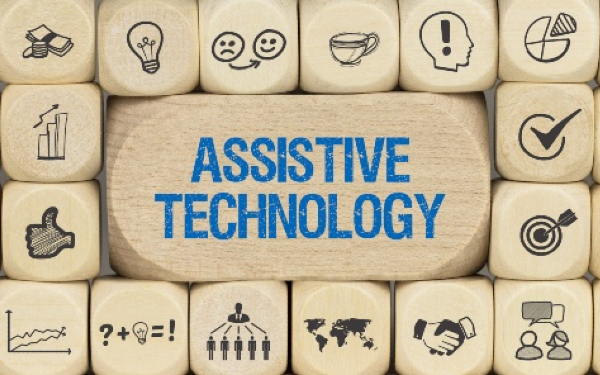
 This article provides practice tips from Community Care Inform Adults’ guide on assistive technology and dementia. The full guide explores key concepts and terms and categories of assistive technology, and discusses some potential uses. The aim of the guide is to enable practitioners to adopt a values- and evidence-based and enabling approach that takes account of the potential benefits, as well as the potential limitations, of assistive technology for people with dementia. Inform Adults subscribers can access the full content here.
This article provides practice tips from Community Care Inform Adults’ guide on assistive technology and dementia. The full guide explores key concepts and terms and categories of assistive technology, and discusses some potential uses. The aim of the guide is to enable practitioners to adopt a values- and evidence-based and enabling approach that takes account of the potential benefits, as well as the potential limitations, of assistive technology for people with dementia. Inform Adults subscribers can access the full content here.
The guide is written by Stephen Wey, senior lecturer on the occupational therapy programme at York St John University.
Assistive technology can potentially support people with dementia in a range of ways, including to facilitate participation in daily living activities, maintain skills, sustain relationships, enable positive risk taking, and hold on to a sense of personhood, self-esteem, confidence and wellbeing.
However, if assistive technology is used in a prescriptive or restrictive way, it may undermine people’s independence and autonomy, as well as waste resources (Woolham et al, 2021). For this reason, thoughtful, person-centred and strengths-based planning around assistive technology is essential.
What is assistive technology?
Alzheimer’s Society defines assistive technology as “devices or systems that help maintain or improve a person’s ability to do things in everyday life” and says that these can “assist with a range of difficulties, including problems with memory and mobility”.
Assistive technology may include:
- Relatively simple ‘low tech’ standalone devices, such as a calendar clock, adapted cutlery, ‘easy-reachers’ or a pressure activated plug, such as Magiplug.
- More complex electronic assistive technology (EAT), such as electronic medication dispensers, memo minders or falls sensors.
- Digital technology, such as smartphones and tablets, Satnav and AI assistant systems like Amazon Alexa. People are increasingly making use of these to organise their lives, find information, access leisure activities and even manage aspects of their home environment such as lighting, heating and security.
- Telecare, which is not any one device, but rather a whole system of care delivered remotely by a 24-hour service centre. It includes remote sensing devices that monitor events, such as falls, temperature, gas being left on and bed occupancy, and communication devices, including a central intercom and one or more community alarms, usually worn as a pendant or wristband, often alongside pull cord alarms in the property.
- Telehealth/telemedicine, in which health monitoring, support and management for particular, usually long-term conditions, such as heart problems or COPD, are delivered remotely within a package of care.
Benefits for people with dementia
There are many ways assistive technology may be of benefit for people with dementia and related memory problems, such as mild cognitive impairment. These include:
- Supporting cognition within activities of daily living by facilitating the person’s memory, orientation and other cognitive abilities to enable them to carry out daily living tasks that are becoming harder to manage.
- Facilitating meaningful occupation and participation in everyday life, including leisure activities and maintaining valued roles within society and family, for example, through contact with carers, friends, family, and groups in the community, for example.
- Supporting the person to maintain their personhood, self-esteem, confidence and wellbeing.
- Supporting empowering and reassuring caregivers and enabling families and friends to maintain meaningful relationships with the person. This could include promoting better understanding of dementia and how to communicate with the person.
- Enabling positive risk taking so that activities can be maintained safely, meaningfully and manageably, widening choices in relation to support and care.
Practice tips
As a practitioner, you can enable the people you support to have a positive experience with assistive technology by keeping in mind the following tips:
- Assistive technology is not a quick fix. It is only as good as the package of care, support and treatment that goes with it.
- When technology is used, it should be to enable the person and to promote mobility, participation, inclusion, meaningful activity and positive risk taking.
- Person- and relationship-centred assessment is key. Use professional reasoning, reflective and reflexive practice and critical thinking in your assessment process.
- Always consider ethical and legislative context and guidance.
- Always consider human solutions and the role/needs of the person and their carers.
- Ensure that the way technology is being used does not disable the person further.
- Don’t overwhelm people with technology or changes. Instead go at their pace and, when possible, build on what they already know and do.
References
Woolham J, Steils N, Fisk, M, Porteus, J and Forsyth, K (2021)
‘Outcomes for older telecare recipients: The importance of assessments’
Journal of Social Work, Volume 21, Issue 2, pp162-87
If you have a Community Care Inform Adults licence, log in to access the full guide. You can also find more guidance on the dementia knowledge and practice hub.




 Bournemouth, Christchurch and Poole
Bournemouth, Christchurch and Poole  Hampshire County Council
Hampshire County Council  Oxfordshire County Council
Oxfordshire County Council  South Gloucestershire Council
South Gloucestershire Council  Wokingham Borough Council
Wokingham Borough Council  Webinar: building a practice framework with the influence of practitioner voice
Webinar: building a practice framework with the influence of practitioner voice  ‘They don’t have to retell their story’: building long-lasting relationships with children and young people
‘They don’t have to retell their story’: building long-lasting relationships with children and young people  Podcast: returning to social work after becoming a first-time parent
Podcast: returning to social work after becoming a first-time parent  How managers are inspiring social workers to progress in their careers
How managers are inspiring social workers to progress in their careers  Workforce Insights – showcasing a selection of the sector’s top recruiters
Workforce Insights – showcasing a selection of the sector’s top recruiters 

 Facebook
Facebook X
X LinkedIn
LinkedIn Instagram
Instagram
Comments are closed.